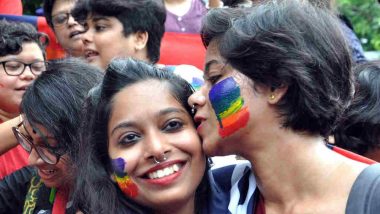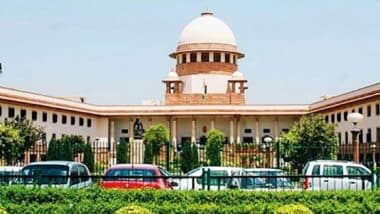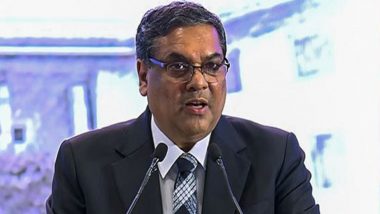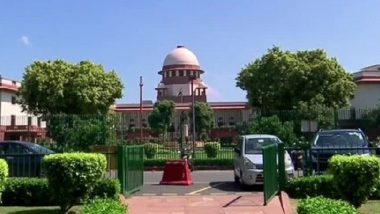New Delhi, September 30: When Koyel M came out as a queer seven years ago, she did not have to confront a homophobe in her mother. Following several conversations, her mother overcame her initial inhibitions and embraced her daughter's sexuality.
But her mother's acceptance wasn't enough to keep the 23-year-old gender-fluid queer comfortable in environments beyond the four walls of her house.
Often, while on a romantic date with a woman in a public space, Koyel became the subject of uncomfortable stares and mutterings.
On September 6, all that changed when the Supreme Court ruled that consensual gay sex was not a crime, and noted that the British-era law criminalising homosexuality violated the right to equality. Section 377 Verdict: It Took 16 Years Of This 29-Year-Old's Life To Breathe Equally As Gay Indian Citizen.
The stigma might continue till society comes out of its biased moorings but the fear of being viewed as a criminal in the eyes of the law is at least over.
"The law can now be my armour," Koyel told PTI.
The verdict has come as a relief to Koyel and thousands of others like her who can now look for love without the scare of being put behind the bars. While she prefers meeting new people outside of social networking channels, she admits that online dating is "easier and faster".
"I, personally, do not look for any serious engagement over or through social networking platforms, but the online dating scenario is something that the new paced life has adopted for itself," she said.
Popular dating applications among the LGBTQ community include Tinder and OkCupid, which according to Divya Dureja, a queer-poet-activist, are "quite accessible and friendly".
Dureja counters the common perception that Tinder is a heterosexual dating app and explains that preferences can be customised according to an individual's sexuality.
Dureja, who has researched over 10 dating applications and websites, said she had been using Tinder "for years to meet other queer women". However, online dating for the LGBT community, much like heterosexuals, comes with a risk of its own.
Prior to the SC's verdict, the members of the community were afraid of being "trapped by extortionists" who could threaten them with police arrest. Now, LGBTQ activist Harish Iyer says the only major threat is that of "fear of disclosure", which is universal. "Threats of online dating have reduced drastically, the only thing they can operate on is fear.
"Fear of disclosure, which is the same as the heterosexual couples actually, as they are afraid their families might come to know about it," Iyer said. The discomfort of dating a same-sex partner also varies with the city one resides in -- while metropolises like Delhi and Mumbai have welcomed people of different sexualities, it continues to be a taboo in smaller towns.
For Dureja, living as a queer woman in Delhi proved to be "relatively safe", making it easier for her to navigate public spaces for romantic encounters.
"My privilege of being in a metropolitan city like Delhi has kept me shielded from facing grave issues or hindrances from others while on date with women in the public sphere," she said.
Iyer agrees that contrary to big cities which are "islands of the privileged", one can engage in a homosexual relationship in smaller towns only in disguise.
"You have to say 'he is my brother, or my friend'," he said.
It is this dearth of safe and comfortable public spaces that Ishaan Sethi is trying to fight with his dating application -- Delta, also touted to be India's "first homegrown LGBTQ dating app".
The app essentially ties up with different brands and cafes -- Olive, Smoke House Deli, Grand Hyatt among others, to offer members of the community places they can visit without any legal problems or social stigma.
"The places we have partnered with taking care that the staff and the environment are inclusive," Sethi said. While Sethi is unable to share the number of subscribers, he agrees that the dating app, which was launched earlier this year in April, has seen a "spike in the user base after the verdict".







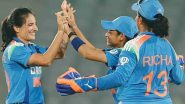
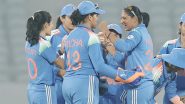




 Quickly
Quickly









